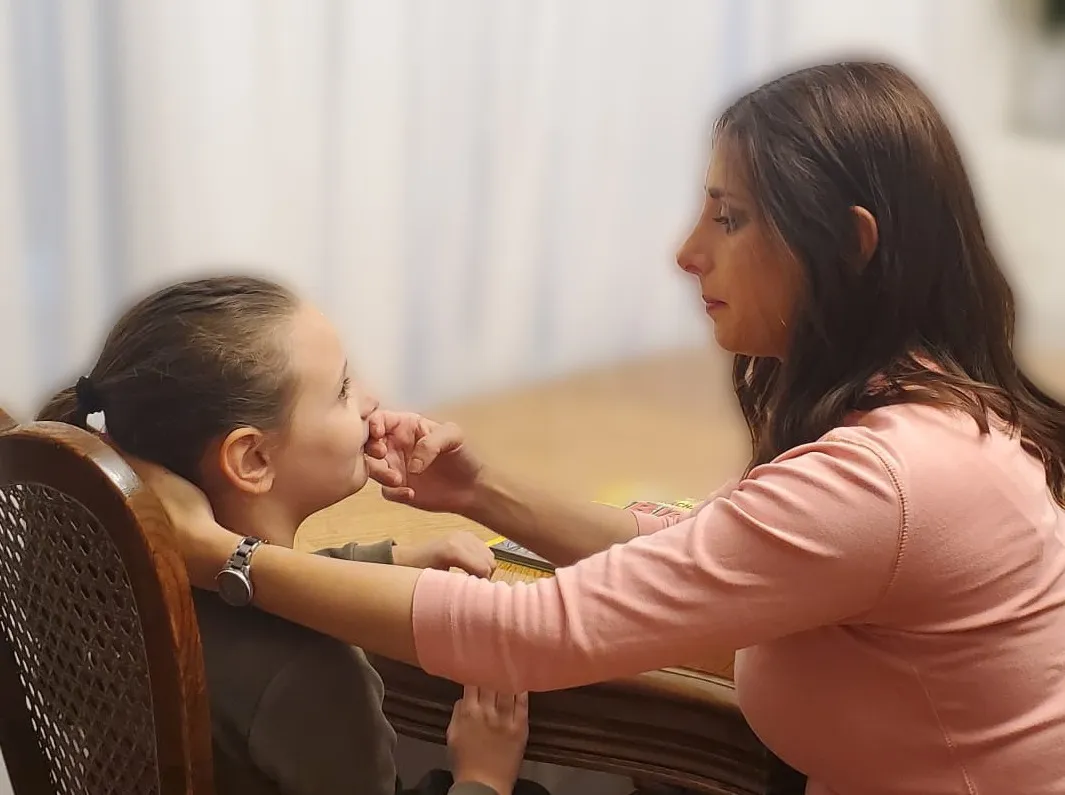Is your child struggling with:
Let's discuss your child's needs and learn how we can help them communicate confidently.
We do not accept insurance but provide detailed superbills upon request that you can submit to your insurance company for possible reimbursement.

We provide specialized speech therapy in key areas to help your child communicate confidently and successfully.
Early intervention helps babies and toddlers (birth to 3 years) who aren't talking as expected or have developmental delays. Language services for older children focus on children with any language difficulties, as well as children with a diagnosis of autism, intellectual disabilities, and other developmental conditions.
Therapy uses play-based activities for younger children and age-appropriate activities for older clients. We teach parents simple ways to encourage communication during daily activities and address complex language skills for school and work.
Treatment covers understanding language, expressing needs, social interaction, and early reading skills. For older clients, we focus on vocabulary, sentence structure, conversational skills, and daily life independence.
Assessments check communication milestones and use play-based evaluation for young children, plus language understanding and academic skills for school-age children. You'll receive a report with findings, therapy goals, and home activities.
AAC (Augmentative and Alternative Communication) helps people with autism, cerebral palsy, intellectual disabilities, and other developmental differences that impact communication. We understand your needs to find the perfect tools for your lifestyle.
We try different communication tools including devices with thousands of words and personal phrases. Training is provided for families and teachers with ongoing support for daily integration.
Options include specialized devices that "speak," tablets with special apps, and simple picture boards. Manual signs and gestures are also implemented for maximum success.
AAC assessments evaluate communication needs and device skills. We try different technologies and determine training needs, providing a detailed report with recommendations and implementation plan.
People with auditory processing challenges struggle with multi-step directions, reading, understanding in noisy places, and frequently need repetition. These challenges are frustrating but treatable.
Treatment begins with testing to identify challenges, followed by specialized hearing training. We suggest home and school modifications and train families and teachers on helpful strategies.
Services include specialized hearing training and practical daily strategies. Environmental suggestions create optimal listening conditions with regular check-ins and hearing specialist collaboration.
Evaluations test how the brain processes sound and analyze daily life impacts. We then provide a detailed report with therapy recommendations and support strategies.
Articulation therapy analyzes speech sound production and error patterns using traditional and specialized techniques. Services help children with apraxia, developmental conditions, and stubborn speech errors.
PROMPT therapy uses hands-on approaches for complex speech coordination through gentle touch cues and multisensory feedback. This is effective for those who learn better with touch cues.
Treatment progresses from individual sounds to everyday conversation with practice activities. Combined traditional and PROMPT techniques allow personalized treatment plans for various speech difficulties.
Assessments analyze speech sounds, error patterns, mouth function, and motor speech planning. You'll receive a report with speech pattern explanations, therapy recommendations, and home activities.
A clear, simple process designed around your needs
Complete evaluation tailored to your child's specific needs, as applicable
One-on-one therapy sessions tailored to your child
We keep you informed about your child's progress and adjust treatment as needed
We do not accept insurance but provide detailed superbills upon request that you can submit to your insurance company for possible reimbursement.